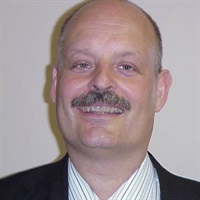IC19 Short Course 32 - Supervision, Co-Vision and Ericksonian Core Competencies - Dale Bertram, PhD and Mike Rankin, LMFT
- Average Rating:
- Not yet rated
- Topic Areas:
- Short Courses | Core Competencies of Ericksonian Therapy | Supervision | Ericksonian Hypnosis and Therapy Techniques | Professional Practice
- Categories:
- Erickson Congress | Erickson Congress 2019
- Faculty:
- Dale Bertram, PhD | Mike Rankin, LMFT
- Duration:
- 1 Hour 31 Minutes
- Format:
- Audio Only
- Original Program Date:
- Dec 12, 2019
- License:
- Never Expires.
Description
Description: How do we train therapists to think and work in an Ericksonian way without reducing the work to a checklist? In this thoughtful and interactive session, Bertram and Rankin explore how the six Ericksonian core competencies can guide supervision while still encouraging creativity and growth. Through dialogue, audience participation, and clinical examples, they demonstrate how to assess trainees, destabilize rigidity, and foster flexibility, confidence, and clinical artistry.
Syllabus Description: Excellent supervisors have a way of joining well with their supervisees. Supervisors build strong associations with supervisors, help supervisees extol their areas of incompetence to collaboratively build competencies, and supervisors learn to utilize what the supervisee brings to enhance the quality of the relationship. Through the supervisory relationship, supervisors/supervisees collaboratively generate approaches to working with clients, building appropriate treatment plans, and helping supervisees develop skills needed to work independently. In short, good clinical supervisors help trainees to become competent therapists.
The new Ericksonian Core Competencies offer possibilities for supervisors and supervisees to build resources for competent supervision and practice. They offer ways for supervisors to assess competency across several areas, give guidance on specific tasks/attributes/competencies to assess within their supervisees, and offer some guidance in assisting supervisees in becoming excellent therapists who work in Erickson informed ways.
However, the new Erickson informed competencies (like other core competencies developed by other organizations such as AAMFT) come with their own set of concerns (e.g., did we capture the essence of the work, did we leave something out, are we being reductionistic in our approach). Because of these types of concerns, the structure of the presentation will be:
- Begin with a discussion related to what core competencies are/aren’t, looking at not just the Ericksonian ones, but ones from other disciplines groups.
- Review the Ericksonian Core competencies in detail, looking at their value in supervision.
- Discuss how supervision needs to transcend core competencies, even though it embraces them.
Educational Objectives:
- Demonstrate how to access the Ericksonian Core Competencies and how to use them for guidance in assessing supervisees.
- Articulate both the value and limitations in core competencies across disciplines and organizations.
- Demonstrate how they can use the Ericksonian Core Competencies to enhance the development of supervisees as clinicians.
*Sessions may be edited for content and to preserve confidentiality*
Credits
Faculty

Dale Bertram, PhD Related Seminars and Products
Dr. Dale E. Bertram is a Professor of Marriage and Family Therapy in the Department of Marriage and Family Studies. Dale’s approach to teaching and clinical supervision is to invite students to expand their abilities to transform theory into practice. He also enjoys helping students expand their comfort in working with difficult and challenging cases. Dale’s primary research interest is in the rhetorical aspects of family therapy dialogue, an area in which he has published several journal articles. He also enjoys working with a team of students each year in the “rhetoric of family therapy” research project. Dale also conducts research related to distance education, online therapy, and online supervision. He has published in Family Process, Contemporary Family Therapy, Family Therapy Magazine, and other journals. Additionally, he is in the final stages of completing a book related to Ericksonian clinical supervision. Dale frequently presents at state, national, and international conferences, as well as providing online workshops and seminars.


